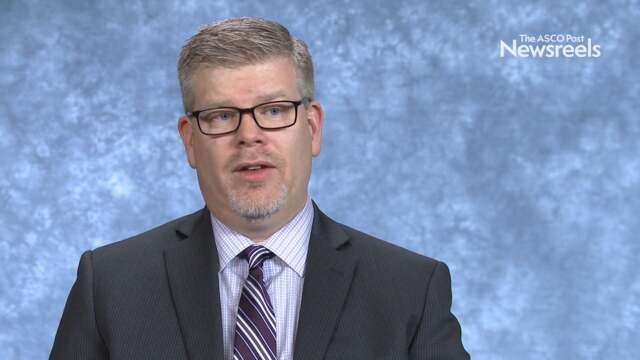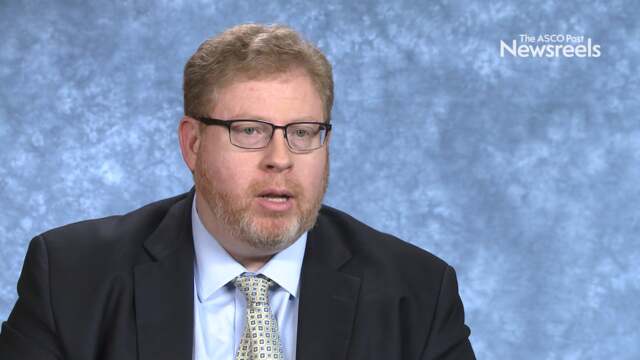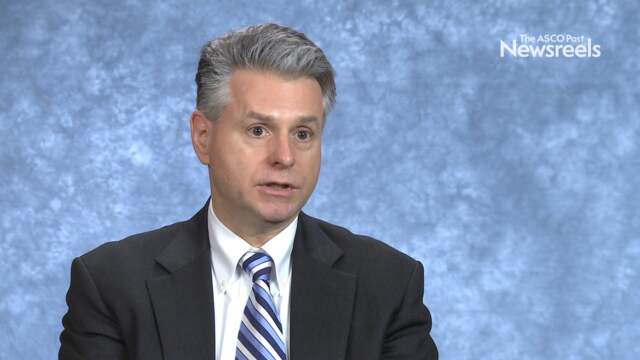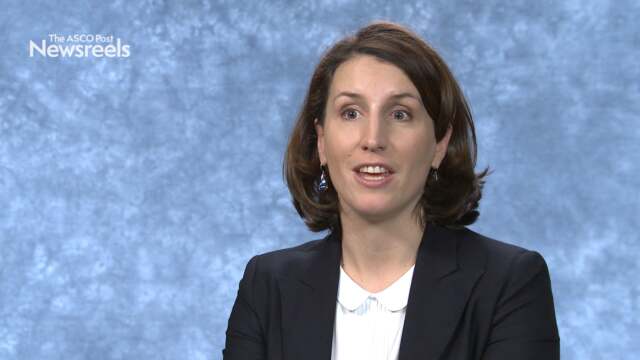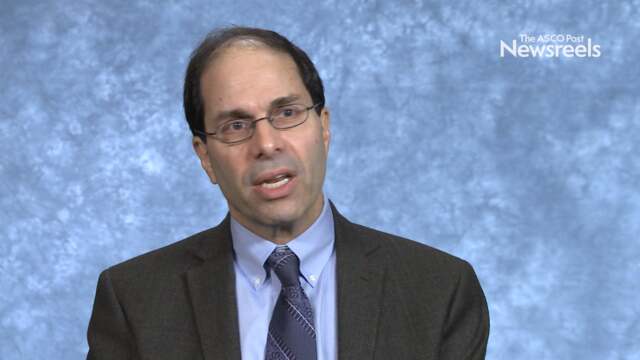Jeffrey M. Holzbeierlein, MD, on Penile, Urethral, and Testicular Cancers: Abstract Roundup
2018 Genitourinary Cancers Symposium
Jeffrey M. Holzbeierlein, MD, of the University of Kansas Medical Center, summarizes key abstracts on long-term sexual function in germ cell tumor survivors, sentinel node biopsy in clinical stage I testicular cancer, the impact of Medicaid expansion on diagnosis and management of patients with testicular cancer, and comparative genomic profiling of refractory/metastatic penile and nonpenile cutaneous squamous cell carcinoma (Abstracts 549-552).
Gregory R. Pond, PhD, of McMaster University, discusses a new six-factor prognostic model for patients with advanced urothelial carcinoma receiving post platinum atezolizumab (Abstract 413).
Jonathan E. Rosenberg, MD, of Memorial Sloan Kettering Cancer Center, discusses longer-term efficacy and safety findings on nivolumab monotherapy in metastatic urothelial carcinoma (Abstract 414).
John J. Coen, MD, of 21st Century Oncology, discusses phase II study findings on selective bladder preservation with twice-daily radiation plus fluorouracil/cisplatin or daily radiation plus gemcitabine for patients with muscle-invasive bladder cancer (Abstract 408).
Laurence Albiges, MD, PhD, of the Gustave Roussy Cancer Centre, discusses study findings on the safety and efficacy of nivolumab in metastatic renal cell carcinoma (Abstract 577).
Eric J. Small, MD, of the University of California, San Francisco, discusses phase III findings on apalutamide vs placebo in patients with nonmetastatic castration-resistant prostate cancer (Abstract 161).
